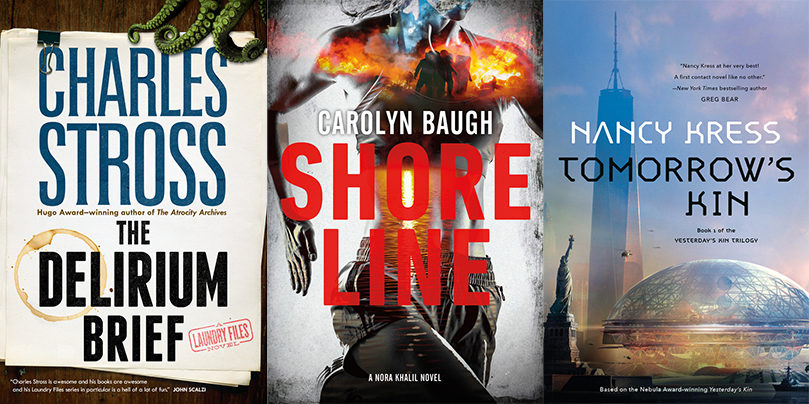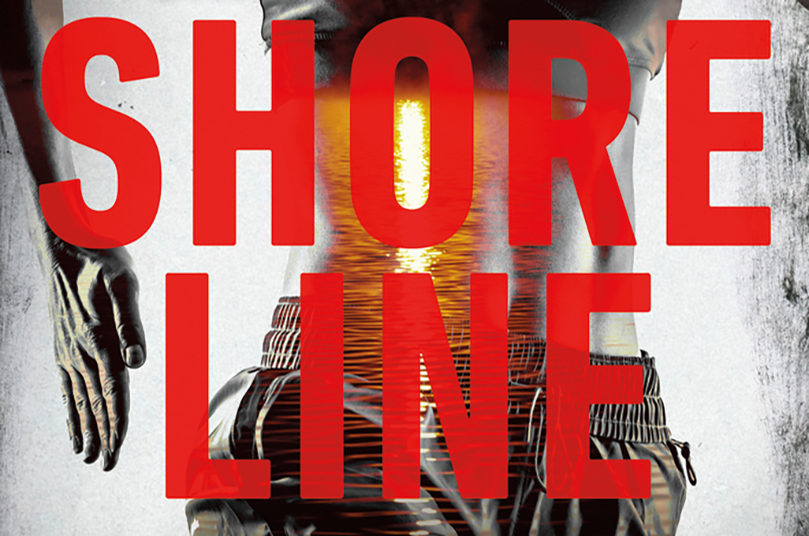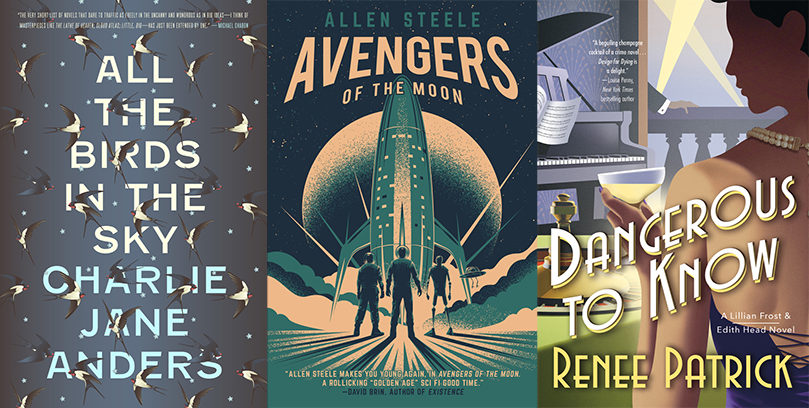
New Releases: 7/11/17
New from Charles Stross, Carolyn Baugh, Nancy Kress and more.

New from Charles Stross, Carolyn Baugh, Nancy Kress and more.

In a world full of violence and bloodshed, Carolyn Baugh has found safe haven in a city on the Great Lakes.

Muslim-American FBI agent Nora Khalil faces explosive domestic terrorism in Philadelphia by those who want to make America great again. Shoreline by Carolyn Baugh will become available July 11th. Please enjoy this excerpt.

New from Allen Steele, Charlie Jane Anders, Renee Patrick, and more!